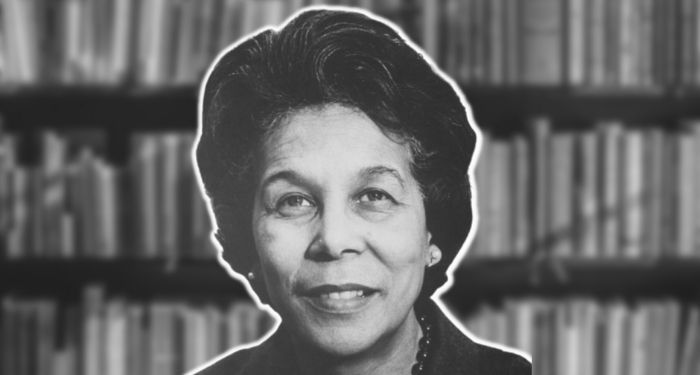
Clara Stanton Jones: Librarian and Advocate
Clara Stanton Jones is a crucial part of librarianship. As we wrap up Black History Month, I’d like to celebrate her historical, trailblazing career. After all, she definitely was the driving force behind numerous amendments to our profession.
Jones was an incredibly innovative librarian and activist, playing a huge role in shifting library services and culture to be more inclusive. While there’s still a ways to go even now, it had to start somewhere. And it did, with her.
Clara Stanton Jones began her career at the Detroit Public Library and was the first Black woman to serve as director of a central public library system in the United States. Part of what made her such a vital library figure was her decision to extend library services into underserved communities and her pioneering work in desegregating the institution of librarianship.
Pioneering Work on Racism and Sexism in Libraries
In 1976, The Council of the American Library Association (ALA) passed a “Resolution on Racism and Sexism Awareness.” Soon after, the ALA Intellectual Freedom Committee (IFC) asked the ALA to reconsider their resolution because its phrasing was too vague. To sum up, the IFC argued that the resolution would make it easier for librarians to purge library materials of racist and sexist language, creating an atmosphere of rampant censorship.
As library professionals continue to debate censorship and neutrality, Jones’s response is still profoundly resonant.
Jones was president of the ALA at the time — the first Black president of the ALA. She argued with the IFC, explaining that the ALA council had “struggled mightily” to decide how much responsibility they had in how the library institution treated “racism and sexual awareness” issues.
But Jones broke the resolution down step by step, pointing out that it was a framework rather than a series of concrete standards to follow. She also advocated for more “information and enlightenment” to fight against the racism and sexism in some materials, pointing out that it would liberate collections. The ALA didn’t scrap the resolution, and librarians were encouraged to engage patrons and staff on the subjects of racism and sexism.
Awards and Innovations
And that definitely wasn’t all. Jones was Commissioner to the National Commission on Libraries and Information Science, serving for many years. On top of that, she was part of the Black Caucus of ALA for 40 years, awarded twice for her work in the group: 1970’s “ALA Black Caucus Distinguished Service to Librarianship Award” and 1990’s “Trailblazer Award.”
In short, library services and culture would look very different without her. ALA has described her as “one of the early pioneers in the field of information referral and library outreach service.” She wrote about outreach and information services in many library publications, introducing the issues to broader audiences.
Additionally, within her community, she used TV, radio, church visits, and other means to make sure Detroit’s Black population would know that they were welcome in the public library. She was one of DPL’s first “neighborhood consultants,” a position meant to repair damage caused by the 1967 race riots.
No one was doing that before her. Without Jones, would we even have community-led librarianship?
A Human Rights Hero
Jones advanced the ALA in dealing with human rights, intellectual freedom, and social justice issues. Without her leadership, it might have taken the field much longer to deal with its built-in racism and sexism.
Also, Jones knew her way around a meaningful quote. She said that “to know what people want and need from libraries, librarians must know the people we try to serve.” That was from a 1971 interview in Ebony, another example of Jones speaking to the community using less typical library outreach.
If you hadn’t heard about Clara Stanton Jones before today, I hope she’s become an addition to your historic librarian heroes. Frankly, I wouldn’t say no to an action figure, à la Nancy Pearl. So, regardless of whether you are reading this during Black History Month or any other time of year, add Jones to your list of amazing Black innovators to celebrate.















